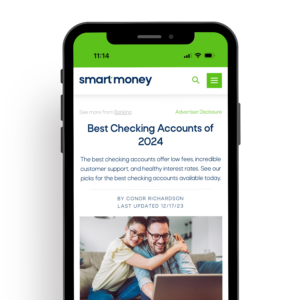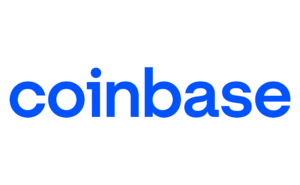Some of the links in this article are from advertising partners of Smart Money, which does not influence our evaluations or recommendations. We work to provide you with accurate and reliable information. Our opinions are our own.
Takeaways
- An IPO involves offering shares of a private company to the public on a stock exchange for the first time through a new stock issuance.
- IPOs allow companies to issue stock to public investors to raise capital for the business.
- IPOs require investment banks, investor demand, audited financial statements, and more.
- Companies must meet stringent stock exchange and SEC requirements to be listed.
- IPOs are seen as liquidity events for founders, early investors, and employees.
If you are new to investing, you might not realize how many household company names are publicly traded on stock exchanges. Over 3,500 companies are listed on the Nasdaq and 2,200 listed on the New York Stock Exchange [1][2]. Companies are added to these stock markets each year through a process called an initial public offering.
What is an IPO?
An initial public offering, or IPO, is when a private company lists its shares on a stock exchange to the public and converts into a publicly traded company. Taking a company public allows retail and accredited investors to purchase the company’s stock and become owners.
When a company is listed on a stock exchange for the first time, investors can quickly become shareholders by purchasing stock through their online brokerage account. After going public, shares of that company are traded amongst investors.
During an IPO, the company sells shares of stock to investors to raise capital for the business. The money raised can help the company continue operations, fund a new product, launch a new business segment, or invest in new technology. IPOs are one of the capital-raising mechanisms available to private companies that must raise capital.
Learn More -> What is Investment Diversification?
Get Smart With Your Money
Fresh weekly articles delivered straight to your inbox.
Enter your name and email for free tips and tricks.

Where Do Companies List Their Stock
To be a publicly traded company, a business must list its stock on the stock exchange. In the U.S., there are two primary indexes where companies list their stock during an initial public offering:
- NYSE is the world’s largest stock exchange based on the market capitalization of listed companies. Its trading floor is located on Wall Street in New York, New York, and is one of the most iconic symbols of capitalism. Companies listed on the NYSE are known for being more mature, must meet certain financial requirements, and are sometimes large enough to pay dividends.
- Nasdaq is the world's Second-Largest stock market and is based in the U.S. It is known for its technology company listings. It has a wide range of companies listed, varying by market capitalization, business, industry, and maturity. The Nasdaq has an IPO calendar where companies can track those about to go public or have recently executed an IPO.
There are other stock exchanges worldwide, such as the London Stock Exchange, Toronto Stock Exchange, Euronext, and Shanghai Stock Exchange, to name a few.
Depending on the country where the stock exchange is located, these stock exchanges and initial public offerings are subject to certain rules and regulations. In the U.S. the Securities and Exchange Commission regulates initial public offerings
Should I Buy Stock in an IPO?
Many investors feel like they are getting in on the ground floor when they participate in buying a company’s stock during the IPO process or shortly after that. That is because companies that come to the public markets to raise capital are generally less mature and have financed their business operations through private investment from venture, institutional, or high-net-worth equity investors.
When a company goes public, it is the first bite at the apple for most retail investors. This early opportunity can allow investors to purchase stock in a company they think will increase in value over time. However, investing in stocks always involves risk.
Get Smart -> What is a Bull Market?
While companies issue press releases announcing the price range and target date, investors' demand for the stock (who place orders with an investment bank) can fluctuate during the deal. These price swings, demand adjustments, and post-transaction investor conviction can cause stock volatility.
Learn More -> What is Passive Investing?
Because of this, buying a stock that is about to IPO can sometimes be viewed as a risky investment. Shares can drop below their issuance price on the day of the offering. Often, that company needs to prove itself to the market to get credit for its business success. Alternatively, a company’s stock can soar after its debut due to pent-up demand. This demand, coupled with investor enthusiasm for the business, industry, and management team, can cause some stocks to double or triple in value.

Acorns Website
Acorns Investing App
Intro Offer: $20 Bonus Investment
Recommended For: Beginner Investors
Annual Fee: N/A
Smart Money Rating: 5/5
Advantages of an IPO
There are many advantages for a business to have an initial public offering. Here are some of the key advantages:
- Access to Capital: Raising money for a company is hard work, especially at a private company. A company’s executive team has to convince potential investors of its business model, growth plans, and strategic vision. As a public company, companies still have the same burden of proof, but investors can sell or buy stock in the open market based on their conviction in the stock. This liquidity allows companies to sell new shares when values are higher and raise capital in the process.
- Evolving Shareholder Base: Smaller companies usually have a small investor base. When a company goes public, it opens itself up to a universe of potential shareholders. Portfolio managers at mutual funds, target date funds, and exchange-traded funds can add these newly issued companies to their portfolios, boosting stock prices even more. Companies can try to match their investors with their lifecycle. For example, a growth company can pursue investment from public market growth funds, aligning company and portfolio objectives.
- Transparency: Being a publicly traded company that the Securities and Exchange Commission monitors means you must report your financial statements quarterly and annually. These financial statements also include management’s discussion and analysis of the business and remove a whole level of obscurity that exists with private companies. Public companies typically host earnings calls, issue press releases, and make public presentations about company plans and objectives. Depending on the private company, they generally don’t make their financial statements known to the public. Transparency allows public investors to assess the investment.
Learn More -> What is the 4% Rule?

Coinbase Website
Coinbase
Smart Money Rating: 4.5/5
Best For: Investing in Crypto
Bonus Offer: Buy Bitcoin from just $10
Disadvantages of an IPO
Going public also has a host of disadvantages, particularly in how the company must operate as a business listed on the stock exchange. Here are several to consider:
- Expensive Process: The pre-IPO readiness phase for a company and post-IPO maintenance can cost a company millions of dollars in accounting, legal, human resources, and finance infrastructure. Additionally, when companies work with an investment bank to raise capital through an IPO, the investment banks are paid a percentage of the transaction, which can amount to millions of dollars. The going rate for IPO is a syndicate fee of roughly 7% of the deal size.
- Stock Price Volatility: Private companies can operate under a cloud of opaqueness from investors. Public companies, however, have a daily pulse on how investors feel about their company and its prospects. The daily stock price gives management, employees, and board members a real-time pulse on how their company is perceived. This daily tracker can be distracting and shift a company’s attention toward short-term value creation instead of thinking long-term. For example, focusing on the next quarter’s results instead of where the company wants to be in 3 to 5 years can be detrimental to its long-term business prospects.
- Compliance and Governance: Transparency can be great for investors, but it requires a lot of work by a company’s internal team. This work begins before a company goes public and becomes normal operations when a company is publicly listed. To remain listed, businesses must adhere to specific governance and company issues for regulatory agencies and stock exchanges. Compliance and governance add a layer of corporate bureaucracy and expense.
Learn More -> How to Spot a Bear Market
Smart Summary
The initial public offering for any company is a step along its financing continuum. It is likely not the first or last time the company will issue stock to raise capital. Companies that IPO have garnered shareholder value and investor enthusiasm and established an attractive business model. When contemplating if buying a newly issued stock is a smart money move for you, you should think about your financial goals, risk appetite, investment time horizon, and overall portfolio. There is a right place and time to purchase IPOs. Not sure investing in an IPO is right for you? Consider consulting a financial advisor to discuss the pros and cons, or invest in debt securities, like bonds.
(1) Statista. Number of listed companies on the Nasdaq Stock Market from 2018 to 2023, by domicile. Last Accessed April 18, 2024.
(2) Statista. Number of listed companies on the New York Stock Exchange (NYSE) from 2018 to 2023, by domicile. Last Accessed April 18, 2024.










